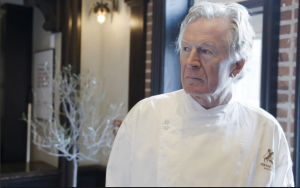RICHARD’S CTV NEWSCHANNEL WEEKEND MOVIE REVIEWS & MORE FOR SEPTEMBER 01.
 Richard sits in with CTV NewsChannel anchor Marcia MacMillan to have a look at the movies that made it worthwhile going to the theatre this summer!
Richard sits in with CTV NewsChannel anchor Marcia MacMillan to have a look at the movies that made it worthwhile going to the theatre this summer!
Watch the whole thing HERE!
 Richard sits in with CTV NewsChannel anchor Marcia MacMillan to have a look at the movies that made it worthwhile going to the theatre this summer!
Richard sits in with CTV NewsChannel anchor Marcia MacMillan to have a look at the movies that made it worthwhile going to the theatre this summer!
Watch the whole thing HERE!
 A new feature from from ctvnews.ca! The Crouse Review is a quick, hot take on the weekend’s biggest movies! This week Richard looks at the giddy “Guardians of the Galaxy Vol. 2,” the delicious documentary “Jeremiah Tower: The Last Magnificent” and the bruising “First Round Down.”
A new feature from from ctvnews.ca! The Crouse Review is a quick, hot take on the weekend’s biggest movies! This week Richard looks at the giddy “Guardians of the Galaxy Vol. 2,” the delicious documentary “Jeremiah Tower: The Last Magnificent” and the bruising “First Round Down.”
Watch the whole thing HERE!
 Richard joins CP24 to have a look at the weekend’s new movies, the giddy “Guardians of the Galaxy Vol. 2,” the delicious documentary “Jeremiah Tower: The Last Magnificent,” the bruising “First Round Down” and the grim and grimy “I, Daniel Blake.”
Richard joins CP24 to have a look at the weekend’s new movies, the giddy “Guardians of the Galaxy Vol. 2,” the delicious documentary “Jeremiah Tower: The Last Magnificent,” the bruising “First Round Down” and the grim and grimy “I, Daniel Blake.”
Watch the whole thing HERE!
 Richard sits in with CTV NewsChannel anchor Jennifer Burke to have a look at the big weekend movies, the giddy “Guardians of the Galaxy Vol. 2,” the delicious documentary “Jeremiah Tower: The Last Magnificent,” the bruising “First Round Down” and the grim and grimy “I, Daniel Blake.”
Richard sits in with CTV NewsChannel anchor Jennifer Burke to have a look at the big weekend movies, the giddy “Guardians of the Galaxy Vol. 2,” the delicious documentary “Jeremiah Tower: The Last Magnificent,” the bruising “First Round Down” and the grim and grimy “I, Daniel Blake.”
Watch the whole thing HERE!
 Jeremiah Tower is the most famous celebrity chef you have never heard of.
Jeremiah Tower is the most famous celebrity chef you have never heard of.
Martha Stewart calls him “a father of the American cuisine.” Anthony Bourdain says he changed the world and Mario Batali calls him “the darling, the glamour puss, the sexy guy, the smart guy and the innovative chef that everybody wanted to know something about.”
The man himself, who pulled a D. B. Cooper style disappearing act at the height of his fame, after defining what an American restaurant could be says, “I have to stay away from human beings,” he says, “because somehow I am not one.”
A new documentary, “Jeremiah Tower: The Last Magnificent,” from director Lydia Tenaglia (and executive produced by Bourdain) aims to shed light on this enigma of man. “I’ve known Jeremiah for forty years,” says former Town and Country Magazine food and wine editor, James Villas, “and I am one of his oldest friends but I still don’t know Jeremiah.”
Born into wealth and privilege Tower had a troubled childhood with an alcoholic mother and a father he refers to as “a prick.”
“From early on food was my best pal, my companion,” he says. Trips to the world’s grandest hotels and voyages on ocean liners ignited a love of glamour—the Queen Mary, he says, “made me fall in love immediately with first class”—and restaurants. He read menus before he read books.
It was his mother’s elaborate garden parties that began his cooking career. His mother was usually drunk before the food was ready so he would help out, jumping into the kitchen to prepare the food.
At Harvard he studied architecture but spent much time seriously cooking for friends on a dorm hotplate. At school his friends encouraged him to get off his butt and join the 1960s youth revolution, but he was too busy cooking. It was there he created ideas about changing the culture through food. Cooking and the quest for a “utopian ideal of living” kept the darkness of his childhood from taking over.
After Harvard he was at loose ends. He had never worked and wasn’t interested in pursuing a career in architecture but had to get a job. He applied at Chez Panisse, a Berkeley, California resto Villas described as “a hippie, drug ridden explosion in a playpen.” “If I hadn’t been so broke I wouldn’t have paid attention,” he says.
As chef de cuisine he applied all he had learned eating around the world to the menu. Everything that had gone before in his life, the theatrics, the complexity, all of it, came into play and it became a sensation when he dropped the traditional French menu in favour of local California produce, dishes and wines. It was the match that started the fire of the new American cuisine revolution.
A fall out over credit with owner Alice Waters turned ugly. Refusing to become a footnote in the Chez Panisse story he left in a huff to create Stars, a San Francisco restaurant that would become a super nova and one of the top-grossing restaurants in the United States for years. Instead of going out to a movie after dinner, at Stars dinner was the entertainment. The success of the place made him a superstar, one of the first celebrity chefs.
In 1998 the place closed and he disappeared, leaving everyone behind.
Tower’s decades long exile ended in 2014 when out of the blue it was announced he would take over New York City’s legendary Tavern on the Green, a place Bourdain calls, “one of the biggest, most thankless operations going?” Why? Tower cites Proust, “Work while you still have the light,” he says. “I wanted to see if my light was still on.”
“Jeremiah Tower: The Last Magnificent” isn’t a food network special. There’s no cooking competitions or Top Five Moments in the Career of Jeremiah Tower. Instead we’re offered a methodical look at the man behind a foodie revolution. Like a chef who over perfumes everything with truffle oil, Tenaglia overuses recreations of Tower’s young life. The footage is stilted and overpowers the telling of the rebellious chef’s troubled childhood.
Archival footage from the well-documented Chez Panisse years onward is livelier, adding a badly needed you-are-there element to the film’s tale of food as an emotional crutch. But then, just as the film works up a head of steam Tenaglia skims over Tower’s decades out of the spotlight, picking up the story again when he lands in New York.
Still “Jeremiah Tower: The Last Magnificent” is a compelling watch thanks to its charismatic subject. In his mid-seventies Tower is as elegant as he is difficult. The film plays a little too heavily into the tortured chef cliché but since Tower had a hand in creating the cliché the movie gets a pass on that count. As the portrait of an enigma, it’s entertaining enough but despite the backstory, the recreations and the myriad of heavyweight talking heads, by the end credits Tower is still an enigma. Perhaps Bourdain sums it up best when he says, “there is a locked room inside Jeremiah, I haven’t been there, I don’t believe anyone has.”